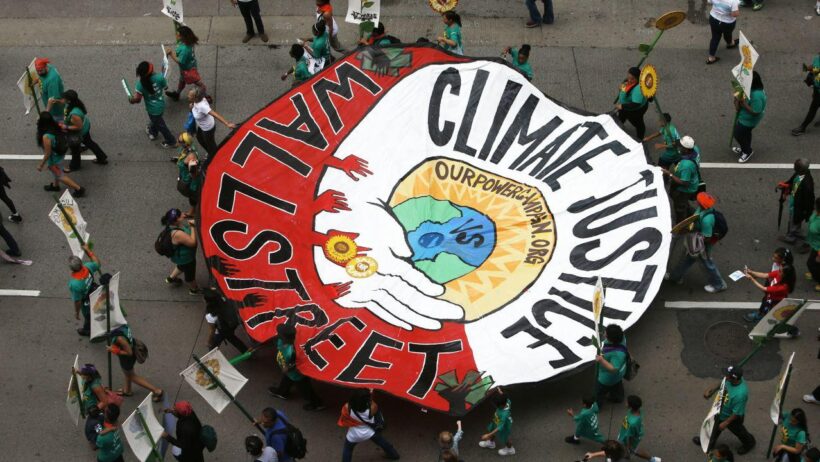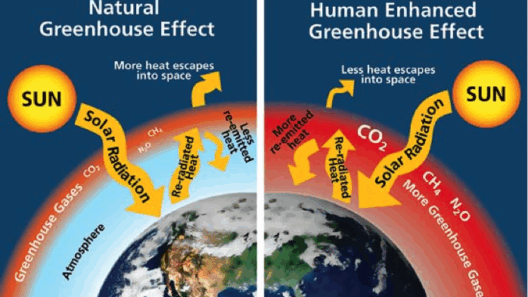Climate change is an omnipresent crisis that manifests not only as an environmental dilemma but also as a profound socio-political issue. The assertion that climate change intersects with social justice invites scrutiny. Many argue that the adverse impacts of climate change disproportionately affect marginalized communities, raising critical societal questions about equity, access, and responsibility. This exploration delineates why climate change is aptly characterized as a social justice issue, uncovering the intricacies of causation, resultant inequalities, and the urgent need for egalitarian solutions.
To commence, it is important to understand the principal effects of climate change. As global temperatures rise due to greenhouse gas emissions, we witness an escalation in severe weather events, such as hurricanes, droughts, and floods. These phenomena are not random; they tend to exacerbate existing vulnerabilities within society. For instance, economically disadvantaged areas often lie in regions prone to flooding or heat waves, resulting in a heightened risk of displacement and loss of property. This stark susceptibility is not incidental but rather a reflection of historical disparities in urban planning and infrastructure investment.
These disparities in exposure highlight a key observation: marginalized populations, particularly those in low-income neighborhoods, tend to bear the brunt of climate disruptions. It becomes increasingly apparent that systemic inequalities are exacerbated in the face of climatic adversity. For example, consider the aftermath of Hurricane Katrina. Predominantly Black neighborhoods experienced significant devastation, and the response from governmental entities revealed a palpable inequity in assistance and recovery efforts. Such instances starkly illustrate a pattern where socioeconomic status correlates with climate resilience and recovery, compelling observers to grapple with the implications of systemic racism and economic disparity in the context of climate change.
Additionally, the intersection of climate change and social justice elucidates a paradox. While climate change affects everyone, the vulnerabilities it amplifies are rooted in longstanding social injustices. The victims of environmental degradation are not merely passive recipients of its impacts; rather, they are often those who have historically contributed least to the problem. Wealthy nations and affluent communities are typically the largest contributors to greenhouse gas emissions, while the most affected tend to reside in less affluent regions. This discord not only questions the moral justifications of emissions produced in the Global North but also stirs discussions about reparative justice and accountability.
Moreover, climate change exacerbates existing health disparities. Vulnerable communities face a compounding burden of poor health outcomes directly linked to environmental factors. Air quality, access to clean water, and overall living conditions deteriorate disproportionately for underprivileged populations. Conditions like asthma, heat-related illnesses, and waterborne diseases proliferate in areas that experience systemic neglect. Such realities compel advocates and marginalized groups alike to frame climate action not just as an environmental imperative but as a fundamental issue of public health and human rights.
Delving further, environmental racism becomes apparent when analyzing the siting of polluting industries and waste disposal sites. Low-income communities and communities of color are frequently the choice locations for hazardous activities, leading to pernicious environmental conditions. The ramifications of these choices extend beyond immediate health risks; they engender a perpetual cycle of neglect where these communities are consigned to endure the dual burdens of pollution and the incapacity to influence decision-making processes that impact their lives. Consequently, the struggle for environmental equity morphs into a struggle for broader social justice.
Furthermore, there is the embracing of the concept of climate justice, which contextualizes climate action within a framework of equity and participatory governance. Advocates for climate justice argue for the inclusion of marginalized voices in policy formulation and implementation. This inclusion not only leads to more representative and effective strategies but also empowers communities to reclaim agency over their lives and environments. By addressing the root causes of vulnerability, climate justice advocates aim to forge solutions that are not only environmentally sustainable but also socially equitable.
Transitioning towards solutions, it is imperative to recognize the potential for transformative change through collective action and policy reform. Initiatives aimed at promoting renewable energy, enhancing public transportation, and revitalizing green spaces can mitigate the effects of climate change while simultaneously addressing social inequities. These measures necessitate partnerships among governments, non-profit organizations, and community groups to ensure that the voices of the marginalized are amplified and that the benefits of such initiatives are equitably distributed.
In summary, the interconnection between climate change and social justice is undeniable. The impacts of climate change are not experienced equally; rather, they accentuate existing inequities that stem from historical injustices. As we contemplate climate action, it becomes crucial to adopt a holistic approach that acknowledges these disparities. Failure to address the relationship between environmental degradation and social injustice may result in exacerbating societal divides rather than fostering a path towards collective resilience. Thus, climate change unequivocally emerges as not just an environmental concern, but as a clarion call for social justice.







